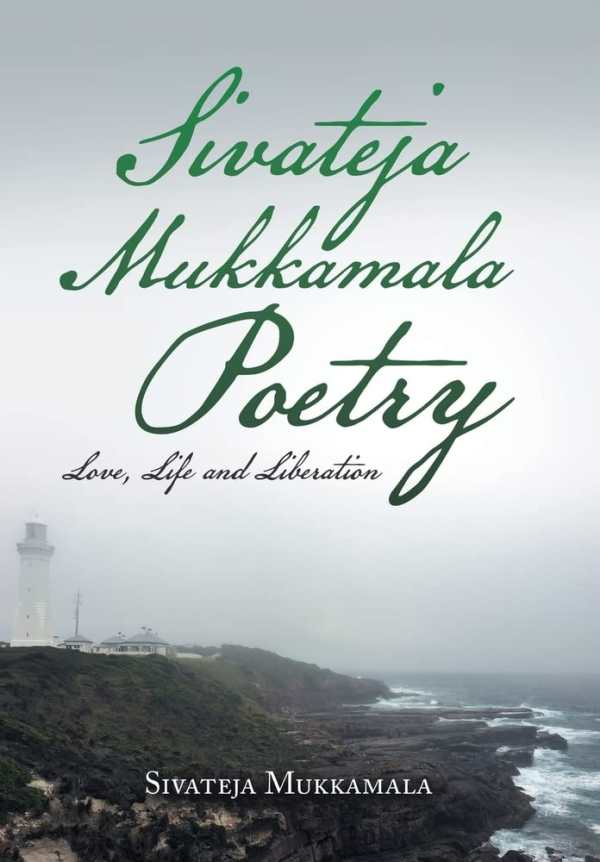Sivateja Mukkamala Poetry
The direct poems collected in Sivateja Mukkamala Poetry ask complex questions about the natures of life and love.
Sivateja Mukkamala Poetry gathers poems that utilize brevity to invite ruminations on the nature of existence.
Interrogating shared reality through questions, this book makes allusions to religion and mythology and questions the relationship between human beings and the divine. “Pandora of Lies or Paradise of Life?” invokes the specter of judgment day, wondering about the possibility of repeating the mistakes of Pandora. And similes arise in entries like “What I Sow Is What I Harvest,” which opens with the classic metaphor of the body being a temple and muses on the significance of belief and action; the lines also compare the body to a mosque, a synagogue, and a monastery. There are natural metaphors, too: in “Rock Steady in the Raging Tide,” the “ship” that sails through a raging tide is in fact the self, besieged by chaotic social and emotional situations.
Many of the entries rhyme, utilizing predictable patterns, slant rhymes, and internal rhymes. However, some of the book’s rhymes are too forced. “Simple Things,” for example, opens with “In the times of dread and plague / It’s rather not wise to live rogue and vague / No matter what the occasion or season / It is wise to apply logic and reason.” Further, while love is a frequent topic throughout the collection (represented in love for one’s mother, adoration for an innocent child, and love for the earth), the book is often impersonal on the topic—or delays its emotions until midway through its entries. “Father,” for example, lists the attributes of a beloved father figure: “From wet nappies to walking aisles / From ball games to sharing drinks / The man who does everything in moderation / The man who waits for no / Adoration.” But its ode to an “amazing father” includes just a tantalizing glimpse at the subject, and even such slight insights are rare in the collection.
The book’s language is direct, and its entries are short—none reach beyond a page. “Real” is two lines long—“Illusions are often wow / But it’s time to live for real now”—returning to the theme of inner versus outer realities and encouraging reflection on it, but in too-brief form. The book addresses unity of all beings in a succinct manner, too: “For all the world we may appear a duo / But in all honesty / I believe we are just one not two.” Such lines are too forceful about imparting their messages, leaving little to the imagination.
The direct poems collected in Sivateja Mukkamala Poetry ask complex questions about the natures of life and love.
Reviewed by
Jeana Jorgensen
Disclosure: This article is not an endorsement, but a review. The publisher of this book provided free copies of the book and paid a small fee to have their book reviewed by a professional reviewer. Foreword Reviews and Clarion Reviews make no guarantee that the publisher will receive a positive review. Foreword Magazine, Inc. is disclosing this in accordance with the Federal Trade Commission’s 16 CFR, Part 255.

